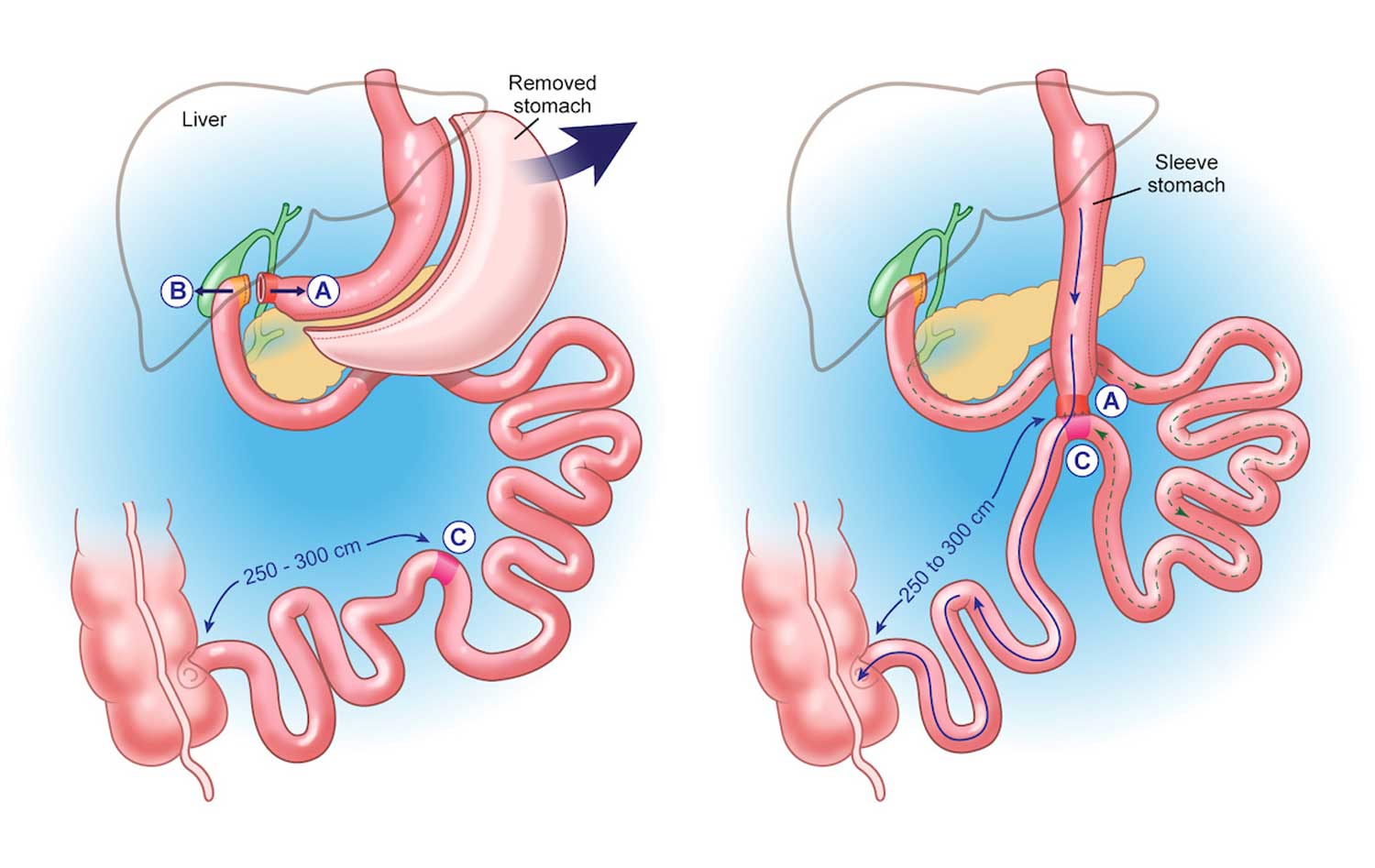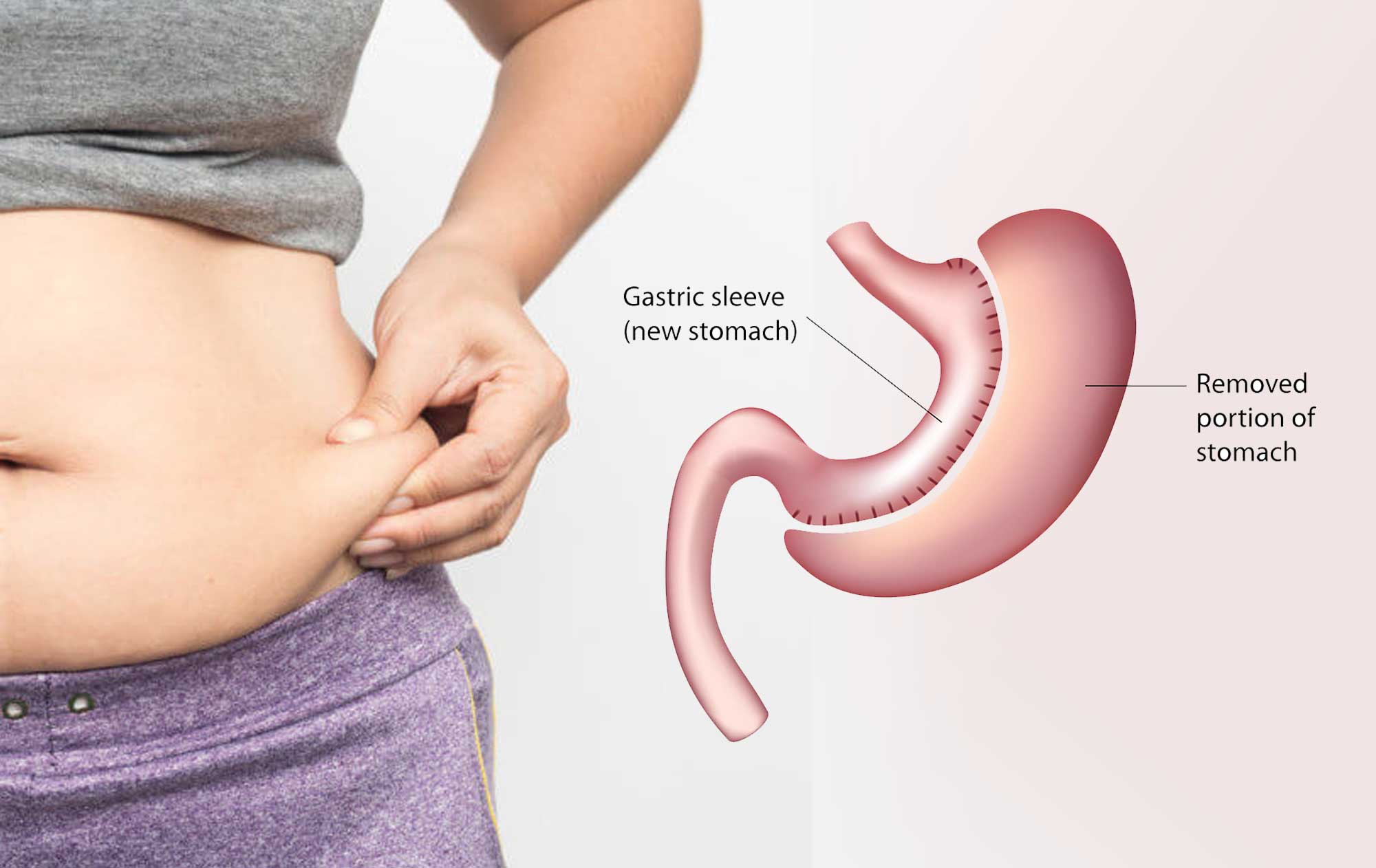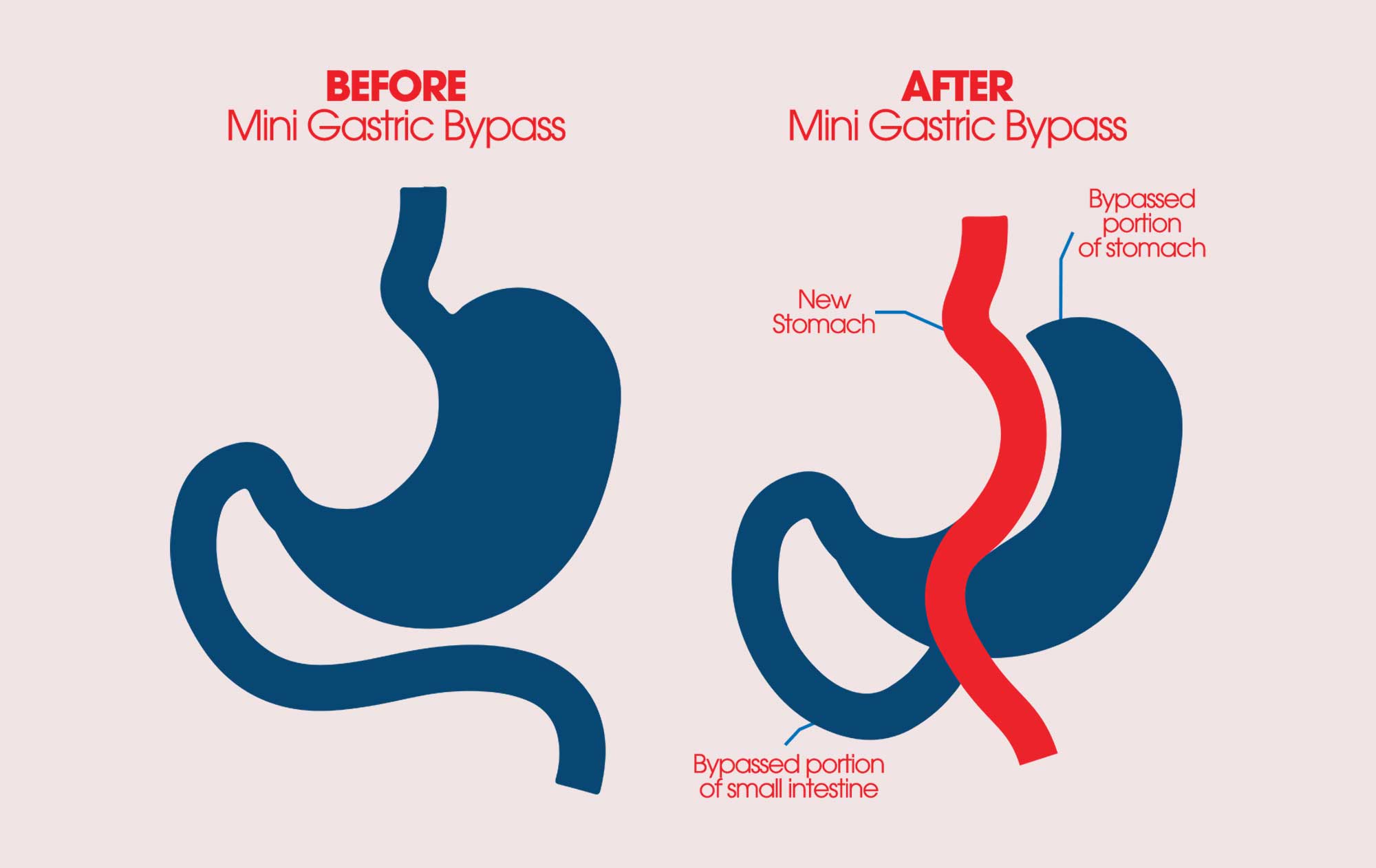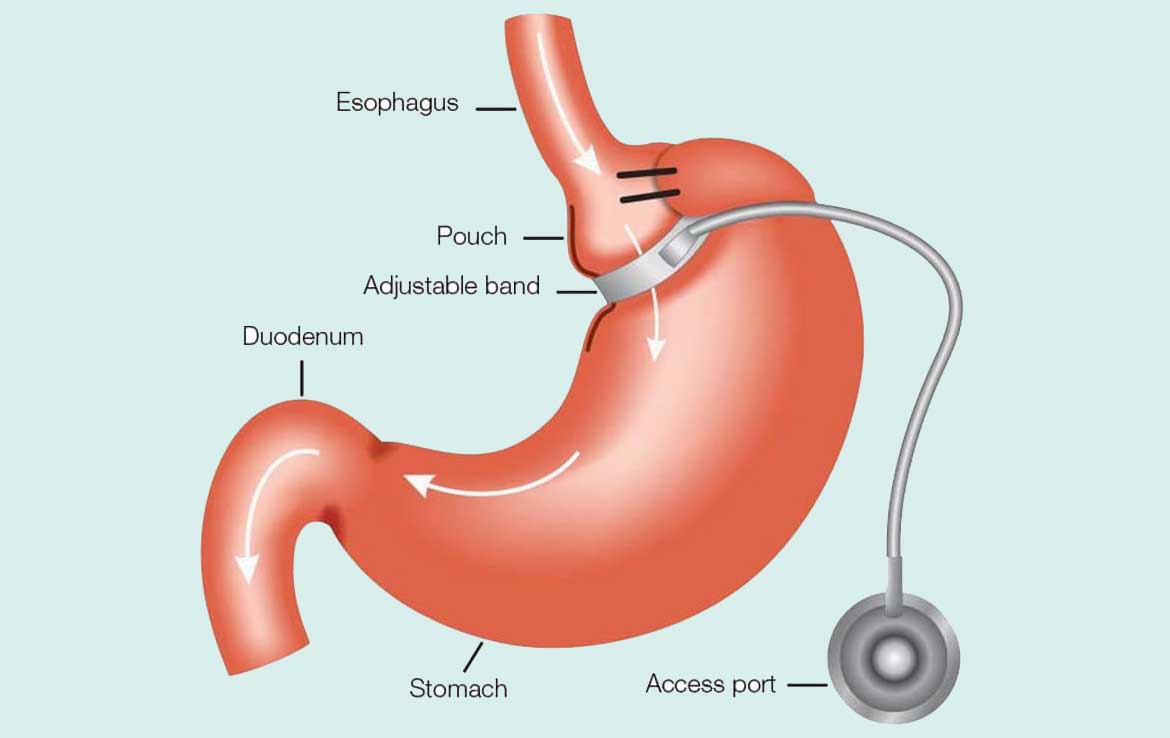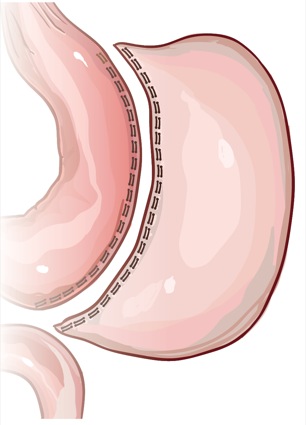
Good Candidates
- Are morbidly or significantly obese (body mass index, or BMI, greater than 40)
- Are moderately obese, with a BMI between 35 and 40, with more a medical condition related to obesity or poor functional status
- Are between ages 16 and 65
- Have an acceptable operative risk
- Are psychologically stable with realistic expectations
- Are committed to prolonged lifestyle changes
- Have a supportive family and social environment
- Have no active alcohol or substance abuse problem
- Do not have active schizophrenia or untreated severe depression
- Have documented failure at losing weight long-term through nonsurgical methods — this usually means evidence that you have enrolled in a program to incorporate diet and exercise
- Are well informed and motivated
- Are able to participate in the treatment, follow-up and diet
Duodenal Switch
September 14, 2019
Duodenal Switch The duodenal switch is a weight loss operation that has been done for…
Sleeve Gastrectomy
September 14, 2019
Sleeve Gastrectomy surgery is a restrictive surgical procedure. It is restrictive in the sense that…
Mini-Gastric Bypass
September 14, 2019
The One Anastomosis Gastric Bypass (OAGB), also known as “Mini-Gastric Bypass” was first reported in…
Gastric Bypass
September 14, 2019
Gastric Bypass surgery is a restrictive/malabsorptive surgical procedure. It is restrictive in the sense that…
Adjustable gastric banding
September 14, 2019
In Adjustable Gastric Banding Surgery, a hallow band made of special material is placed around…
Best Doctors:
Dr. Hamed Ghodsi
Bariatric Surgeon Dr. Hamed Ghodsi, a skilled and experienced board-certified Bariatric Surgeon, was born in 1969. He received his medical degree from Iran University of Medical Sciences, one of the…

